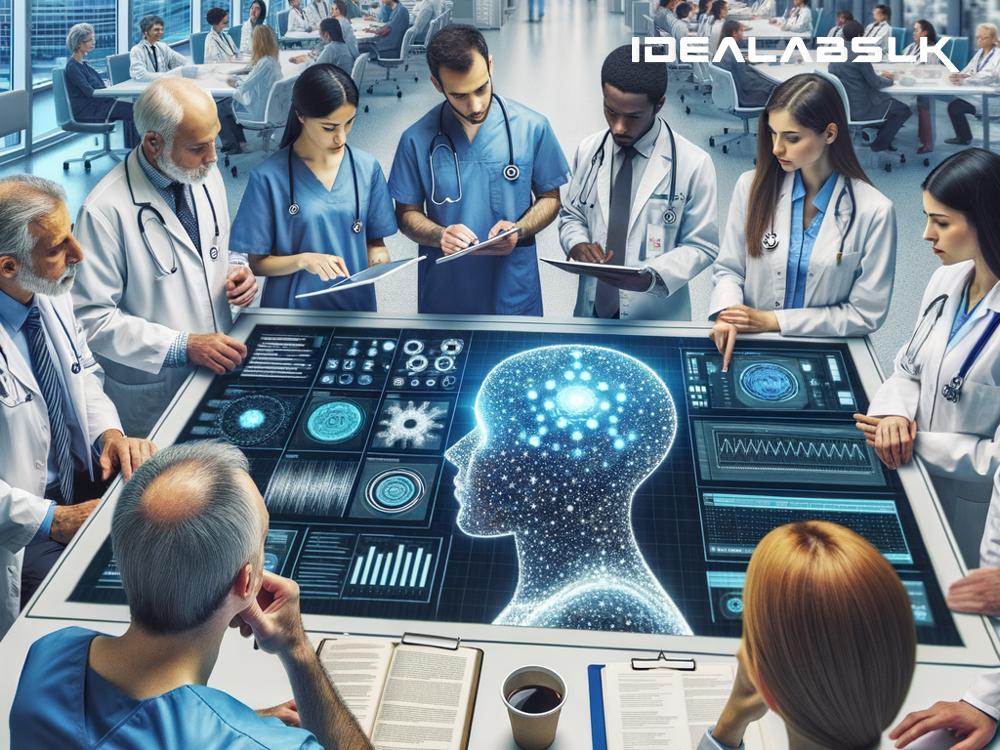How AI Is Transforming Healthcare: Reducing Medical Errors and Supporting Doctor's Decisions
In the ever-evolving landscape of healthcare, Artificial Intelligence (AI) is a beacon of hope, especially in reducing medical errors—a leading cause of concern across the globe. Medical errors, as daunting as they sound, refer to avoidable mistakes in healthcare management and can range from incorrect diagnoses to prescribing the wrong medication. The good news, however, is that AI is stepping up, offering a powerful tool in the arsenal against these errors by assisting doctors in making more informed decisions. But how exactly is AI managing this feat? Let's dive in.
A New Era of Diagnosis
One of the most critical aspects of healthcare where AI is making significant strides is in the realm of diagnosis. Traditional diagnostic procedures, reliant on human analysis and interpretation, are prone to error, given the complex nature of human biology. Enter AI, with its ability to sift through vast amounts of medical data, including patient records, genetic information, and existing medical literature, at lightning speeds. This capability allows AI to identify patterns and correlations that might elude even the most experienced professionals.
For instance, AI algorithms have been developed to detect specific cancers earlier and with greater accuracy than traditional methods by analyzing medical images like X-rays, MRIs, and CT scans. Early and accurate diagnosis is paramount in treatment success, and by reducing diagnostic errors, AI is significantly impacting patient outcomes for the better.
Personalized Treatment Plans
Each patient is unique, and so is their response to treatment. This is where AI steps in, harnessing its data-analyzing prowess to curate personalized treatment plans. By considering a patient's genetic makeup, lifestyle, and even responses to certain medications (gathered from historical medical data), AI can predict how effective a treatment plan would be for the individual.
This isn't just guesswork; it's precision medicine, an approach that significantly reduces the trial-and-error methodology in treatments, thereby minimizing errors and adverse reactions to medications or therapies. Moreover, it empowers doctors with insights that were previously unavailable or difficult to decipher, enabling them to make more informed decisions tailored to the patient's specific needs.
Reducing Medication Errors
Medication errors, unfortunately, occur more often than we'd like, sometimes with grave consequences. Here, too, AI is making its mark. With its ability to analyze and flag potential drug interactions or allergies based on a patient's medical records, AI applications are helping doctors and pharmacists avoid prescribing medications that could cause harm to the patient.
Moreover, AI technologies can monitor a patient's compliance with medication regimes, especially in chronic conditions requiring strict adherence to prescribed medication schedules. By alerting healthcare providers to potential non-compliance, AI aids in ensuring that patients are receiving the right medication at the right time, thus reducing errors related to medication.
Streamlining Workflow to Minimize Errors
A significant but often overlooked aspect of reducing medical errors lies in streamlining healthcare workflow. The administrative burden on healthcare professionals is immense, leading to fatigue and, inevitably, mistakes. AI applications, through automation of routine tasks, are alleviating this burden. Whether it's scheduling appointments, managing patient records, or even reminding patients of their medication schedules, AI is ensuring that healthcare providers can focus more on patient care and less on administrative tasks.
This streamlined workflow not only increases efficiency but also minimizes the risk of errors related to oversight or fatigue, contributing to a safer healthcare environment.
Challenges and the Way Forward
Despite its promise, integrating AI into healthcare does come with its set of challenges. These include ethical considerations, data privacy concerns, and the need for robust data sets to train AI algorithms effectively. However, with continued advancements in technology and a collaborative approach involving policymakers, tech companies, and healthcare professionals, these hurdles can be overcome.
As we forge ahead, the role of AI in healthcare is set to grow, heralding a new era where medical errors are significantly reduced, and doctors are equipped with the tools they need to make decisions with unprecedented accuracy and confidence. The journey is just beginning, and the potential for AI to transform healthcare is vast and exciting.
In conclusion, AI's impact in reducing medical errors by assisting doctors in making informed decisions is undeniable. From enhancing diagnostic accuracy to personalizing treatment plans, and from reducing medication errors to streamlining administrative workflows, AI is not just a technological marvel but a beacon of hope for safer, more efficient healthcare. As we continue to embrace and refine this technology, the dream of a healthcare system that is both error-free and tailored to the individual patient's needs is within our grasp.

